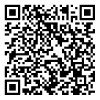The Earth Summit
The Earth Summit, officially known as the United Nations Conference on Environment and Development (UNCED), was held in Rio de Janerio, Brazil, from June 3 to 14, 1992. It was a landmark international conference that brought together representatives from 178 countries to discuss global environmental issues and sustainable development. The conference put sustainable development on the agenda as global priority and developed the Agenda 21, the first action plan for sustainable development on the local, national, regional and international scale. The plan covered topics like poverty, health, deforestation, and pollution and focused on integrating environmental protection with social and economic development. In addition, the Convention on Biological Diversity and the Global Warming Convention were agreed.[1][2] During the 20th anniversary of the Earth Summit, the Rio +20 in 2012, the need for structured governance mechanisms and a renewed framework was emphasized, which ultimately led to the SDGs.

Further reading:
United Nations Sustainable Development (1992).
Agenda 21.
United Nations Conference on Environment & Development Rio de Janerio, Brazil.
Bernd G. Lottermoser /
Matthias Schmidt (Ed.)
with contributions of
Anna S. Hüncke, Nina Küpper and Sören E. Schuster
Publisher: UVG-Verlag
Year of first publication: 2024 (Work In Progress)
ISBN: 978-3-948709-26-6
Licence: Ethics in Mining Copyright © 2024 by Bernd G. Lottermoser/Matthias Schmidt is licensed under Attribution-ShareAlike 4.0 International Deed, except where otherwise noted.


Further Informationen:
Project "Ethics in Mining"